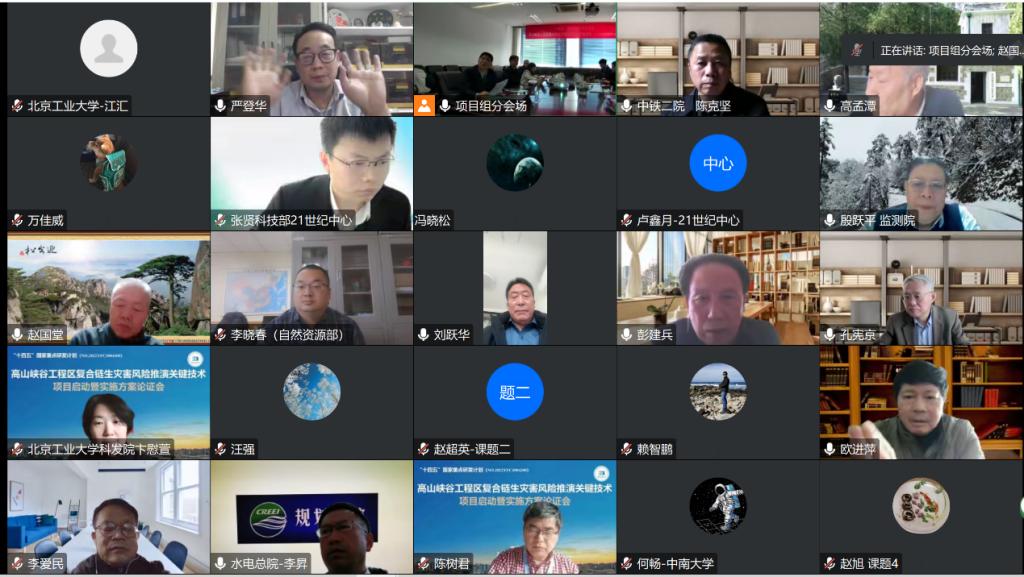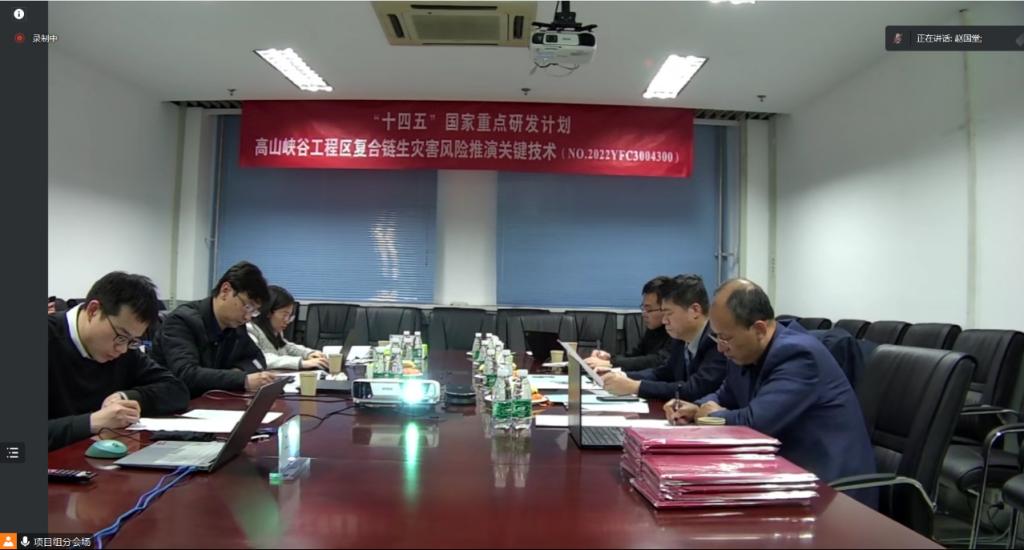BJUT held an online project launch meeting/implementation planning workshop on the afternoon of January 18. The project “Key Technologies in Deducing Compounding and Cascading Disasters and Risks in Construction Zones in Alpine Valleys” was an integral component of China’s key R&D plan “Prevention and Control of Severe Natural Disasters and Public Safety (2022YFC3004300)” led by BJUT. More than sixty people participated in the meeting, including stakeholders from the project management unit, industry competent departments and Beijing Municipal Science and Technology Commission; Professor Ou Jinping of Harbin Institute of Technology and Academician of the Chinese Academy of Engineering, Professor Kong Xianjing of Dalian University of Technology and Academician of the Chinese Academy of Engineering, and Professor Peng Jianbing of Chang’an University and Academician of the Chinese Academy of Sciences from the Advisory Expert Group; Professor Chen Shujun, Executive Vice President of the Institute of Science and Technology Development at BJUT; project leader Academician Du Xiuli; and all the other team members.
The project and topic leaders introduced to the Advisory Expert Group the implementation plan for the project and topics from the perspectives of research contents, technical routes, expected results and management steps. The Advisory Expert Group listened attentively to the presentations, reviewed the relevant materials, and unanimously approved the implementation plan. The project team was also advised to improve the plan according to experts’ opinions and suggestions.

After the meeting, Academician Du Xiuli required the topic leaders and core team members to take stock of the suggestions made by project follow-up experts and advisory experts, and gave instructions on the next research priorities and the promotion of demonstration projects.
The project “Key Technologies in Deducing Compounding and Cascading Disasters and Risks in Construction Zones in Alpine Valleys” was led by BJUT and nine other organizations including China Institute of Geo-Environment Monitoring, Institute of Geomechanics of the Chinese Academy of Geological Sciences, Tsinghua University and Central South University. The project focused on the construction and operational stability of “Sichuan-Tibet Railway” and “Hydropower Development Project in the Lower Reaches of the Yarlung Zangbo River” located in Sichuan-Yunnan-Eastern Tibet alpine valleys. By combining the methods of theoretical analysis, numerical simulation, on-site detection, prototype monitoring, model testing and earthquake hazard verification, the project conducted research into the effects of two types of cascading hazards, i.e., earthquake-landslip/mudslide-barrier lake-flood and rainstorm-flood-landslip/mudslide on dams, bridges and tunnels (three types of major projects in China). The project is playing a supporting role in the construction of important national projects and promoted socioeconomic sustainability.





